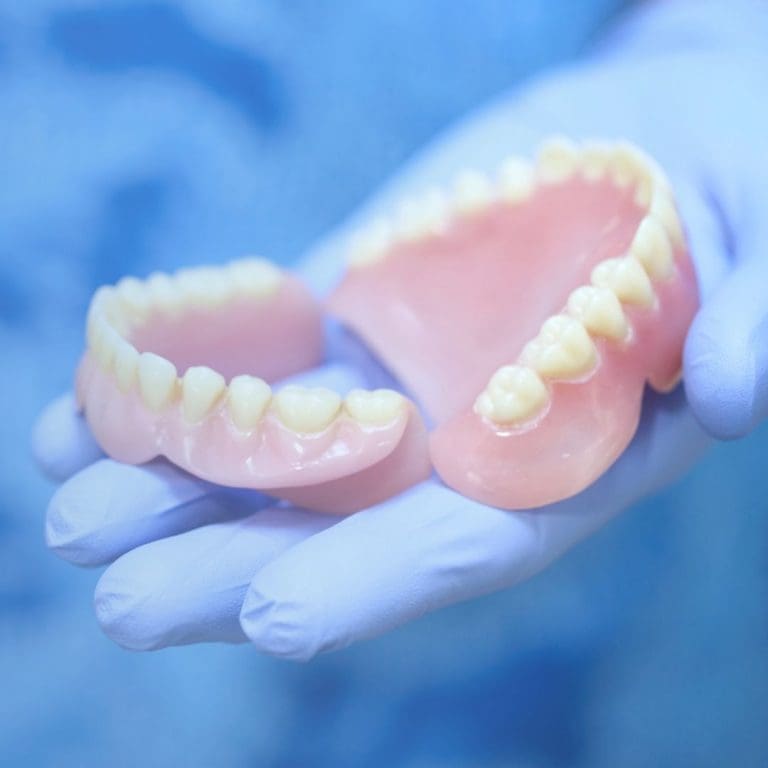Dentures
If you’ve begun thinking about getting dentures, you’re probably starting to research your treatment options. Here is some information about the types of dentures and what might work best for you.
What are dentures?
Dentures are artificial teeth that are manufactured to replace one or more teeth that have been lost or extracted. Dentures come in two basic types: partial and complete, meaning that they can replace one or more teeth, or all teeth on the upper and lower jaws.
If you’re getting dentures, they will be custom-crafted to fit the unique contours of your mouth. They also should provide a close visual match to your natural teeth.
Although dentures are not a perfect tooth replacement option, they make a fine choice for many people.
You should also explore your other tooth replacement options, such as dental bridges and dental implants.
Benefits of Dentures
- Enhances your smile: With dentures, you get your smile back. And their color closely matches your natural teeth.
- Confidence boost: Most people don’t feel confident smiling when they have missing teeth. This can even cause them to give up social activities.
- Improves shape of the face: If you’re missing some teeth, particularly in the back, your jaw muscles will eventually sag. Dentures can offer a more defined facial appearance.

What are the different types of dentures?
The following are a few of the more common types of dentures that are available:
Complete Dentures
As the name suggests, complete dentures are meant to replace all of an individual’s teeth. They rest over the gums, in contrast to bridges that use existing teeth as anchors. A patient can normally get complete dentures in about eight to 12 weeks after their teeth have been extracted.
Partial Dentures
If you have some remaining natural teeth, partial dentures may make a good choice. They have a pink base connected to a metal piece. Partial dentures are conveniently removable and keep your other teeth from shifting. Partial dentures are normally made from an acrylic material.
Implant-Supported Dentures
Patients sometimes complain about how their dentures can shift in their mouth, potentially leading to embarrassing situations. With implant-supported dentures, this is not a problem. This type uses dental implants to provide a firm foundation so that your dentures remain securely in place.
What To Expect
First, your teeth will need to be removed. Tooth extractions are a very common type of dental procedure. You’ll be given aftercare advice following your extraction procedures.
Next, your dentist will make an impression of your mouth for the creation of your custom dentures. Once your dentures are ready, you’ll return to have them fitted.
How to Care for Your Dentures
Once you’ve been fitted for dentures, you’ll want to ensure that you protect your investment so that it lasts as long as possible.
You’ll need to regularly clean your dentures, but avoid brushing them. Dentures are not natural teeth, so they could become damaged by brushing. You would clean your dentures by soaking them overnight. By properly caring for your dentures, they should last for many years to come.
